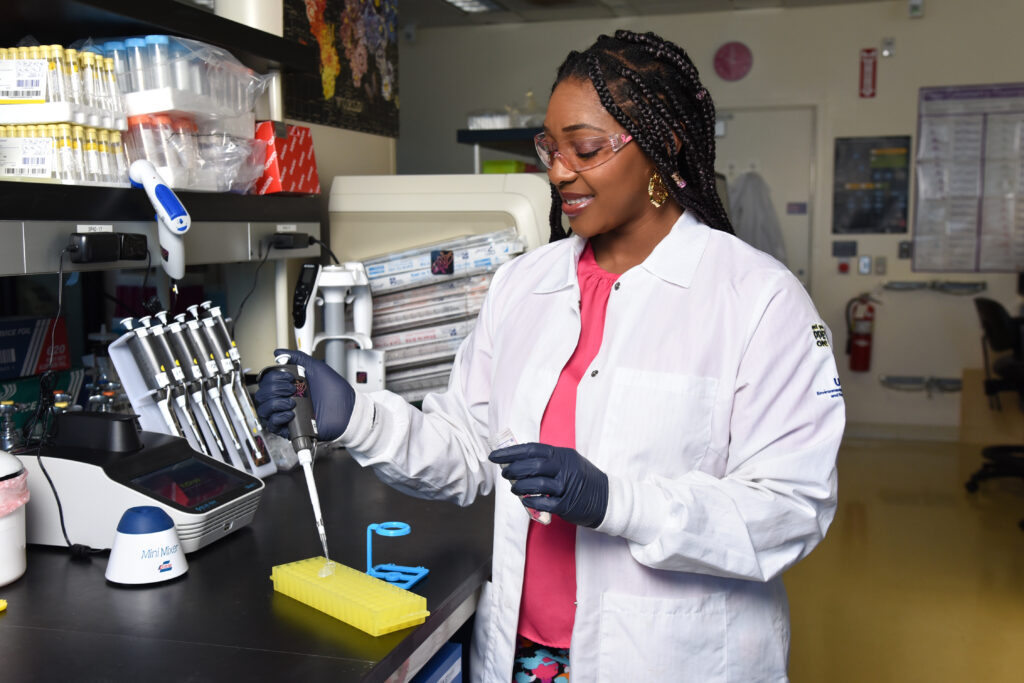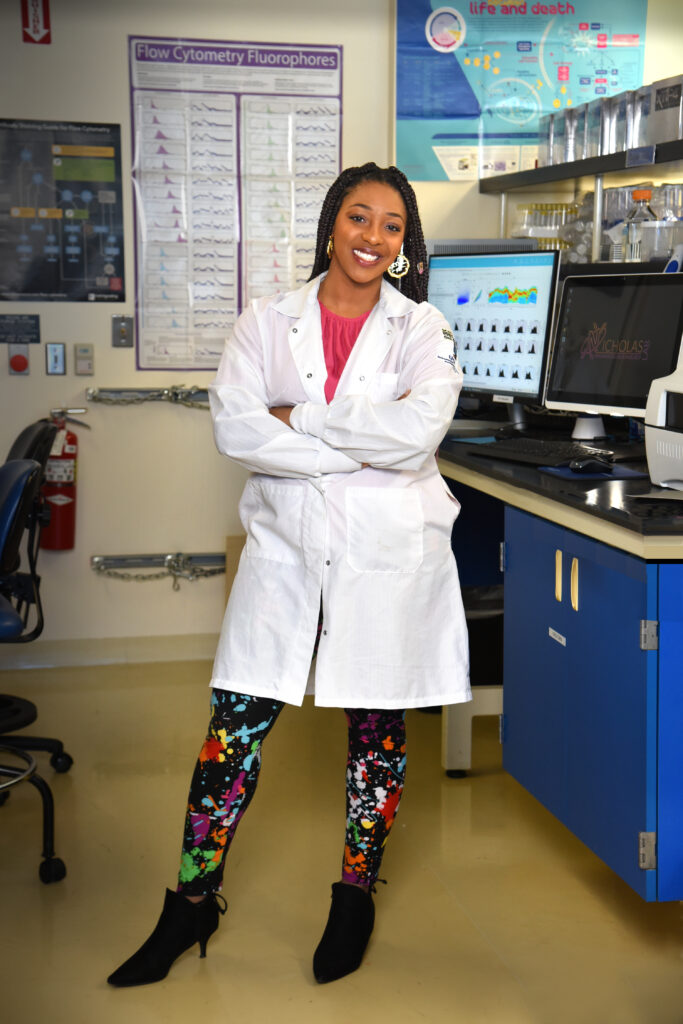
As a child, Molecular Biology and Biochemistry Assistant Professor Dequina Nicholas didn’t understand why her mother jabbed herself with needles and worried about her diet. Now she is researching a new way to combat diabetes, her mother’s longtime disease and one that poses a hazard to Professor Nicholas herself. Her award-winning work takes place as California contends with a diabetes rate exceeding the national average.
“It was only when I became high-school age that I realized my mother was diabetic and even then, I didn’t really understand what diabetes was,” said Professor Nicholas. While she majored in chemistry in college, she decided to pursue graduate biology studies with a mission to learn more about the disease.

With her grandmother also diabetic, Professor Nicholas is at high risk. Even though she exercises regularly and eats appropriately, “no matter how active I am, my blood sugar is never in the normal range,” said Professor Nicholas.
It has been thought that dietary lipids trigger the immune response producing diabetes’ characteristic inflammation. In rodent models, eliminating this inflammation eradicates the disease. Due to differences between rodents and humans, the process doesn’t work in people. However, the concept has propelled Professor Nicholas in an innovative direction.
“We think several other lipid species could actually be triggering the immune response,” she said. “Perhaps we should be managing lipids instead of blood glucose. It might be possible to produce an antibody therapy that gets rid of those lipids and prevents or eliminates the diabetes.”
The findings could also help women with polycystic ovary syndrome, or PCOS, an endocrine disorder affecting those of childbearing age. The inflammation associated with PCOS resembles that of diabetes. In recognition of her groundbreaking work, Professor Nicholas has won the National Institutes of Health Director’s New Innovator Award from the National Institute of Allergy and Infectious Diseases. As passionate as Professor Nicholas is about her research, she is equally dedicated to diversity and mentorship.
“You can’t answer a complex problem without the insights of many people with different backgrounds,” she said. As to mentoring, “I discovered the value of it firsthand when I began graduate biology studies after majoring in chemistry. My mentors helped me tremendously. Now, I learn from my mentees, who challenge me and keep me from approaching things in a set way.”
The 2023 Dean’s Report is focused on the state of California and calls attention to some of the work being done by faculty at the School of Biological Sciences that has a direct impact on the state’s residents and ecosystems, from climate change to diabetes research and much more.
